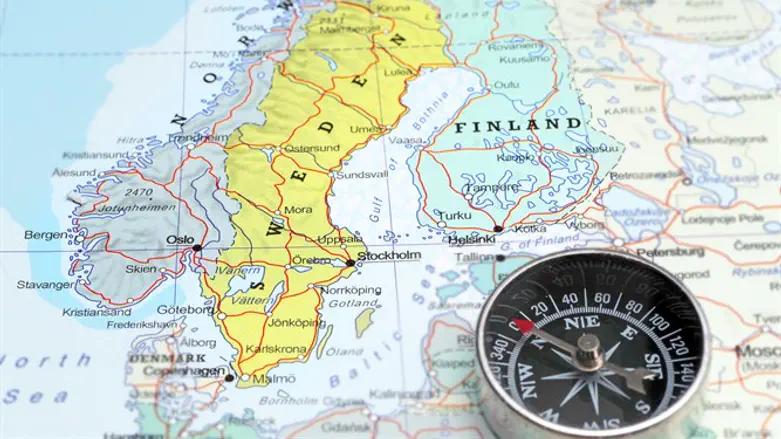
This is the assessment of Danish psychologist and political analyst Nicolai Sennels, brought in the Geller Report. Sennels concludes that NATO will at some point have no choice but to respond to the threat posed by Sweden towards its member states.
"Sweden is in a state of collapse," writes Sennels. "Dozens of areas are now under Islamist control, which leaves locals in the hands of violent sharia patrols. According to the Swedish police, thousands of Islamic State sympathizers are on the loose, endangering not only native Swedes, but also neighboring countries such as Denmark, Norway, and Finland—the first two of them being NATO members.
"The Swedish state has shown no genuine determination to contain the problem. Nor do they have the capacity to do so, even should they decide to act. After a century of pacifism and quasi-neutrality, the traditionally Feminist country’s military is so small that it would barely be able to defend the capital of Stockholm, should the Islamist controlled suburbs surrounding it decide to attack. Some 80 percent of municipal police officers are prepared to quit; a horrifically high number which indicates the feelings of hopelessness and stress within their ranks.
"Having taken in, and still accepting, hundreds of thousands of migrants and (supposed) refugees from the Islamic world (in particular), formerly safe and peaceful Sweden has become a real threat to security and stability to all of Scandinavia.
"A considerable share of the now 10 million people living inside Sweden come from Islamist countries, or are descendants of parents from such areas. The Danish Security and Intelligence Service (PET) recently warned how, 'the [terror] threat against Denmark can come from abroad, especially neighbouring countries (Germany and Sweden). When assessing the terror threat, we therefore also follow developments in these countries. Our assessment is that some refugees and migrants arriving in Europe and Denmark have contacts to Islamist groups or can be radicalized after arriving here.'”
Commenting on Sennels' report, Pamela Geller, President of the American Freedom Defense Initiative, wrote, "Soon, a majority of West European countries’ – and therefore NATO’s – military forces will be deployed within Europe to protect the population against religiously-endorsed crime and terror. In this way, the EU’s mad refugee policy might end up actually killing NATO, leaving a power vacuum on the global political scene which will inevitably be filled by big players such as Iran, Turkey, Russia, and China."
This is borne out by Sennels: "At some point, NATO will have no choice other than responding to the threat posed by Sweden towards its member states. Article 4 in the North Atlantic Treaty allows members of the military alliance to call for assembly when, 'the territorial integrity, political independence or security of any of the Parties is threatened.' At such assemblies, the alliance can reach consensus on how to react to such threats, including the activation of Article 5, the so-called Musketeer oath (i.e., 'All for one and one for all.').
"Turkey recently invoked Article 4 as a consequence of the threat from Islamist militias based in Syria. The NATO assembly granted that country permission to react and, with assistance from the US, Turkish forces entered Syria to secure the border area.
"Without adequate control of militant Islamism in neighbouring Sweden, NATO members like Denmark and Norway are in a similar situation to that of Turkey. The question is, how long will these two Scandinavian countries, and NATO itself, remain passive towards this threat?
"If Sweden itself can not, or will not, contain the threat, should NATO enter Sweden, either by force or in agreement with the Swedish state? Not just lives, but the general stability of Scandinavia is at stake. Attacks from Swedish based terrorists that took place in Denmark or Norway could force an affected country to allocate considerable amounts of military power to secure itself. Thus, leaving it incapable of fulfilling its own international obligations to NATO. This could include weakened capabilities to defend the strategically important Baltic Sea which is subject to an increasing Russian presence," he reasons.
Sennels concludes with an appeal from the example of Israel: "Just as Israel deserves the free world’s support, the time has come to also consider how to protect the Swedes. If we do not manage to do so, within one generation, Europe may very well have to cope with another Islamic State, this time inside its own territory. The moment we start abandoning our own, our days are numbered."